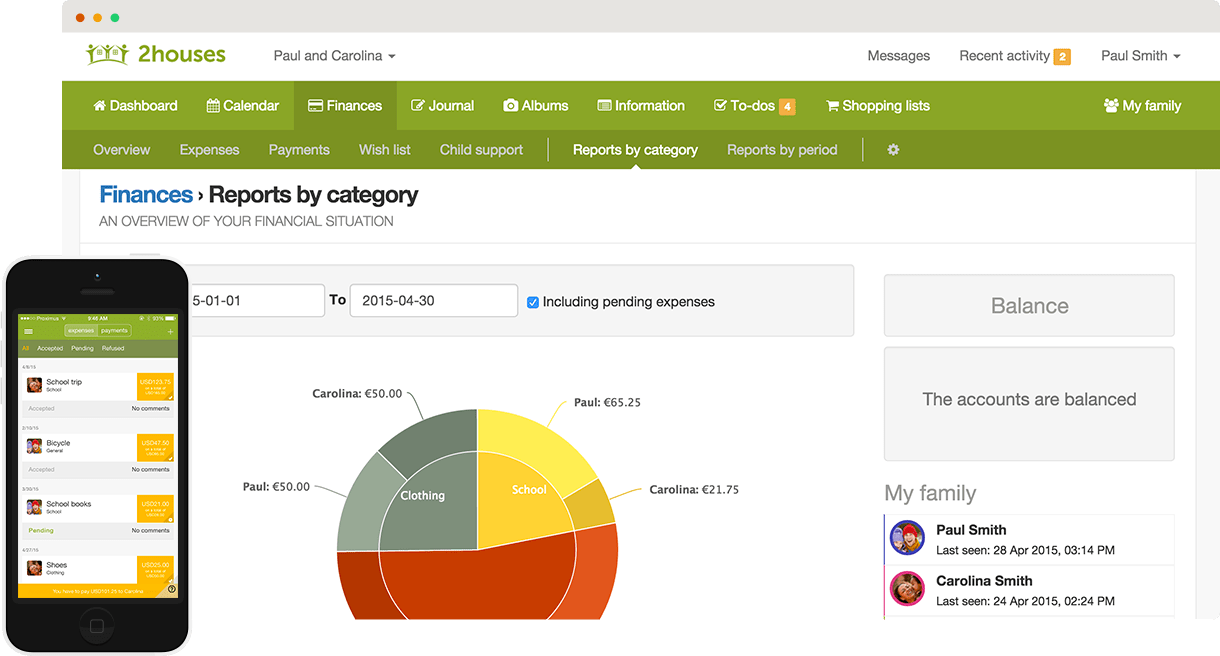In the US alone, a couple gets divorced about every 36 seconds. This amounts to 2,400 divorces each day. If you’re going through a tough time, you can at least know that you’re far from alone!
One of the common reasons for divorce is emotional abuse. Navigating this dynamic between yourself and your abuser can make an already difficult situation even trickier. However, in order to navigate it, you’ll need to first figure out whether or not your situation truly is one of gaslighting.
That’s why we’re here today to talk about gaslighting, what it looks like, and how you can get help. Read on for some help in identifying whether you’re a victim of gaslighting and what you can do to overcome your pain.
What Is Gaslighting?
In the simplest terms, gaslighting is a form of emotional abuse that has to do with making the victim question their sanity. The abuser slowly and covertly will plant seeds of doubt in the mind of the victim. This will cause the victim to believe that they are misremembering things or making up things that didn’t happen.
Generally, this abuse tactic is a way for the abuser to remain in control. They make light of the victim’s beliefs and reassert that the gaslighter is stable while the victim is not.
One of the main gaslighting tactics is denying that something has occurred. For example, if the victim remembers the gaslighter saying or doing something harmful, the abuser may deny that this happens. They will convince the victim that they’re misremembering things and being a bad person that paints the gaslighter negatively.
If the abuser doesn’t flat-out deny that these situations happened, they may belittle the victim in other ways. A gaslighter may treat you like you’re blowing events out of proportion. They want you to think that your emotional reactions are too intense and that you are crazy for ‘overreacting.’
Sometimes, an abuser will stage dramatic and strange events surrounding you and your relationship. These events are meant to disorient and confuse you. Many times the abuser will also swoop in and ‘save’ you from this event that they caused in the first place. They will use this occurrence to prove that they are actually a nice person and are the only thing standing between you and more problems.
What Are Some Examples of Gaslighting?
Gaslighting comes in a lot of forms. However, the main examples of gaslighting come in the form of things that an abuser tells you. Some common examples of things that a gaslighter says include:
- “You’re overreacting, you overreact to everything.”
- “You just love to throw me off track.”
- “I was just joking! You’re so sensitive.”
- “You always are so dramatic.”
- “No one believes you, so why should I?”
All of these phrases are red flags that gaslighting may be taking place.
Another example of gaslighting is when an abuser flat-out lies to you about a situation that happened.
For example, let’s say that your partner orders something online with a credit card that you never said they could use. They may say something like “you said I could borrow it and pay you back later, so I did.”
If you try to tell them they’re misremembering, they will become angry. You may not say anything at all. If you do, they may become angry and yell at you. This can cause you to question whether or not you actually remember things correctly.
Some gaslighting may seem like less of a big deal.
Let’s say that your partner loves brownies, so you decide to be nice and surprise them with a homemade batch. Your partner gets home and says, “I don’t really like brownies, but I do love cookies! That must be what you’re remembering. Well, next time!”
This may seem like a minor occurrence, but it’s part of a painful pattern. Your gaslighter is breaking you down and getting you to question reality in many ways. Even a seemingly innocuous occurrence like this is a big deal and should be taken seriously if you notice it.
What Are the Warning Signs?
In addition to these common phrases and persistent lying, there are also other signs of gaslighting. Many of these have to do with your feelings and behavior, but these changes are not your fault. Read on for some signs of gaslighting that you need to know so that you can better identify abuse.
You’re More Anxious, Depressed, and Isolated Than Usual
While mental health issues can stem from many factors, they are often a sign of gaslighting. This is because a gaslighter:
- Knows how to make you blame yourself
- Creates elaborate scenarios to prove their devotion to you
- Tries to constantly keep you on your toes (a.k.a. anxious!)
- Dismisses your feelings of unhappiness and guilt
- Refuses to validate what you are going through
- May keep you away from other loved ones (for fear that they see through their manipulations)
As you might imagine, all of these factors may make you feel alone and depressed. If you begin to notice your mental health deteriorating, it may be a good idea to assess your situation.
While worsening mental health isn’t always a sign of gaslighting, gaslighting almost always leads to mental health problems.
You Find Yourself Apologizing a Lot
One of the main side effects of anxiety is that you end up apologizing often. This is a concrete way that you can measure your self-doubt and anxiety. Much of the time, you’ll just be apologizing for existing because you’re scared. This should never happen, and it’s a sign of serious relationship problems.
If you notice that you have been apologizing persistently, take an objective look at the situation. Did you actually do anything to apologize for? Do you remember doing that thing?
If the answer to either of these questions is ‘no,’ you may be a gaslighting victim.
Many times, other loved ones will alert you to your excessive apologizing. Don’t brush these concerns off, but look inward and figure out why you are apologizing.
You’re Making a Lot of Excuses
People who are in abusive (or even just toxic) relationships often find themselves making excuses a lot. These excuses can be to absolve their partner of blame to third parties.
A lot of the time, people will say that it isn’t their partner’s fault that something happened and blame it on external factors. This happens even when external factors aren’t present. Those in toxic relationships want everyone to see only the good in their partner. When you’re being gaslit, this can lead to a lot of difficult lying on your part.
However, these excuses aren’t only things that you tell others. You also may make excuses for your partner’s behavior internally. Some examples are:
- “She’s only late to events every single time because she is dealing with (possibly nonexistent) family.”
- “I know that he lies, but it’s because he had a difficult childhood.”
- “He only hurts me because he loves me.”
These are all thoughts that should give you pause.
Making Decisions is Really Hard
Gaslighters always make you question your decisions. As a result, you may find that making choices is really hard when you’re being gaslit. If you used to be confident in your decision-making skills but no longer are, take a moment to assess why this is the case.
Did someone make you feel that way? Be honest and don’t make excuses.
If the answer is ‘yes,’ it’s time to begin implementing coping strategies. This can help you to bring back your confidence.
How Can You Cope With Gaslighting?
Once you identify that you’re a victim of gaslighting, it’s important that you know what to do about it. Here, we’re going to discuss some ways that you can cope with having been gaslit. Read on for the most important things you can do to help yourself heal.
Don’t Second Guess Your Memory
Gaslighters love to make you question your memory. They love to sow the seeds of doubt until you no longer feel in control of your thoughts or your mind. One of the biggest impacts of this is that you no longer will trust your memory. This makes sense considering that they’ve told you over and over again that it’s failing you.
While it’s easier said than done, the first step towards healing is learning to trust your memory again. If you recall something happening, it probably did.
For a bit of additional validation, keep a daily journal of things that happen. When you begin to doubt something took place, look in the journal. The event will be right there and you’ll immediately have validated yourself!
Getting support from loved ones is critical in the healing process, but affirmation also needs to come from within. Next time you feel like asking another person (such as your gaslighter) to validate a thought or memory, look inward. Take a moment to affirm it for yourself instead of seeking external validation.
Practicing mindfulness is a great way to get in touch with your own mind as well. You’ve been through a terrible ordeal, so it’s only natural that you have a lot of feelings to process.
Let yourself experience both positive and negative emotions. Once you get in tune with these feelings, you can record them in your journal to become more in touch with them. This will teach you to identify and cope with your feelings and become more in touch with your mind and memory.
Stand Up for Yourself
Quashing doubt is a great way to support yourself internally. But what about showing your abuser that you respect yourself? What about eliminating all doubt that your memories, thoughts, feelings, and opinions are valid?
That will take a bit of work. Standing up for yourself is difficult, especially when you live with a gaslighter. However, it’s necessary, and it will likely show your abuser that you aren’t going to stand for their games anymore.
Some examples of things you could say include:
- “That isn’t how I remember things.”
- “That happened. I remember it happening.”
- “Do not lie to me.”
- “I remember that you said (x) on (y) occasion.”
- “My feelings and perception of this situation are valid.”
It’s natural that you might struggle with saying these things at the beginning of your healing process. However, a professional can help.
Get Professional Help
No matter what you choose to do about the abuse, professional help for gaslighting is essential. A therapist can help you practice mindfulness and monitor your progress as you learn to validate yourself internally.
A professional can:
- Help you hold your ground by refusing to take responsibility what the gaslighter has done
- Ensure that you remember the facts and hold true to your truth
- Assist you in fighting back on your own terms
- Help you choose your battles
- Go over your journal (if you want) and assess progress
- Provide you with mindfulness activities
If you are forced to co-parent with your former gaslighter, professional help is even more important. A therapist can help you navigate the ins and outs of communicating with them. They also can help you to maintain your sanity when doing so.
Leave ASAP
Assuming that you aren’t already in the process of getting a divorce, you should leave the persistent gaslighter.
Pack up your things, walk out the door, and turn to supportive loved ones. Talk to a therapist. Never look back.
If there are kids involved, however, this may be more of a challenge. You still should separate, though, because your well-being is also a priority. You simply may need some professional tools to help you along.
2house’s platform allows you to communicate with the person you’re separating from about the welfare of your child. It’s optimized to help you organize the care and protect the well-being of your child while still letting you maintain distance from your ex. This distance is a good idea for most separated couples, but when dealing with someone who gaslit you, it’s essential.
Learn More
Being the victim of gaslighting is both painful and challenging. However, if you know where to look for help, you can begin to heal.
We’re happy to discuss your individual situation with you and point you in the direction of professional help. We also have many tools that help you manage your time and communication as you go through a divorce, including calendar, finance, and messaging applications.
We look forward to hearing from you soon!















